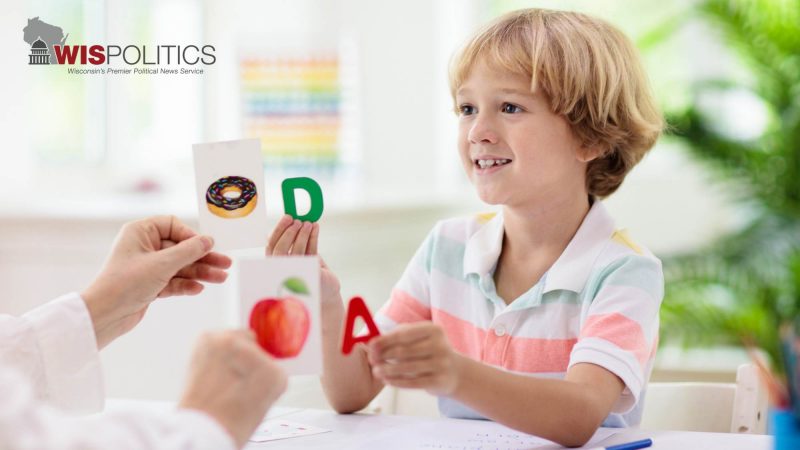Wisconsin will now take a phonics-based approach to literacy and help teachers implement the new learning model, under legislation Gov. Tony Evers signed.
AB 321 also will work in concert with $50 million that was set aside in the state budget to fund the initiatives.
The new law Evers signed yesterday includes creating an Office of Literacy to contract 64 full-time literacy coaches who will help teachers implement a new system based on phonics, vocabulary building, reading fluency, and oral language development, among other things. That will replace programs in some schools that stressed teaching reading through pictures, words cues and memorization.
Under the law, students who read below grade level will now receive individualized reading plans until they catch up.
>> WisPolitics is now on the State Affairs network. Get custom keyword notifications, bill tracking and all WisPolitics content. Get the app or access via desktop.
The original bill Republicans introduced this year would’ve required third-graders who can’t pass a reading assessment to be held back. But authors dropped it amid opposition from the Department of Public Instruction and the guv.
Evers praised the process to refine the bill, while calling it just one step in addressing student performance. He urged efforts to address issues such as hunger among students.
“So, if we want to improve outcomes for kids in our classrooms across the board, this bill is only one small part of the work we have to do — we must continue making meaningful investments in our kids and our schools, bolster our education workforce to help keep class sizes small, and expand access to mental health services and healthy meals in our schools so our kids can bring their full and best selves to our classrooms,” Evers said.
Rep. Joel Kitchens, R-Sturgeon Bay and a co-author of the bill, said the new law is needed to address the “reading crisis” facing Wisconsin. He said 64 percent of fourth-graders aren’t proficient at reading, while noting the state is last in reading achievement among Black students. The changes, he said, will help identify struggling students sooner to get them the help they need.
“Science-based reading programs are working in blue states and red states. I am confident it will also work in our purple state,” Kitchens said. “It is the same way most of us learned to read in the first place.”
Meanwhile, the Wisconsin State Reading Association and the Wisconsin Education Association Council issued a statement knocking the bill signing.
WEAC President Peggy Wirtz-Olsen charged it was “developed through backroom deals between politicians and bureaucrats instead of talking to licensed teachers who work with students every day. Wisconsin Public School educators devote our lives to teaching students to read and – just as importantly – to develop a lifelong joy for reading. To suggest otherwise is disrespectful toward our public school educators.”
Along with AB 321, Evers signed five contracts with state employee unions, including: State Troopers, state attorneys and UW System employees in several building trades units.
See the guv’s release:
https://www.wispolitics.com/2023/gov-evers-signs-bill-aimed-at-improving-literacy-outcomes-for-kids-statewide/



